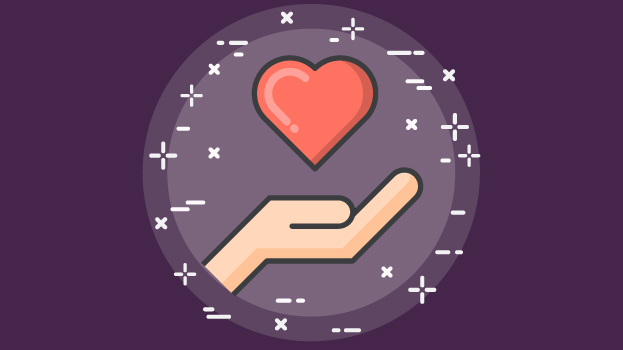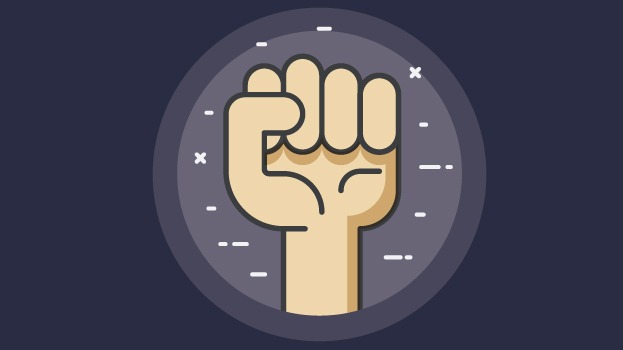With the COVID-19 pandemic and the resulting economic recession having negatively affected many people’s mental health globally, it begs the question, what will the long-term effects be on communities, businesses and the economy?
Awareness around mental health was already on the rise pre COVID-19, but is now top of mind for many. This is because for the first time in a long time, the whole world has been affected, not only those who are predisposed to mental health challenges.
As such, employers and businesses worldwide are now finding themselves trying to find ways to best support their teams so as to build resilience and survive post crisis and beyond.
So in honour of R U OK? Day, we ask ourselves, why are we still struggling as a community to prioritise mental health every single day of our lives? Shouldn’t we be paying attention to those close to us, our family, friends, colleagues, and make sure they are actually doing ok on a regular basis? And more importantly, what can we do to mitigate, prevent and support?
It all starts with asking “R U OK?”
Such a simple, yet extremely powerful question. One that can literally save lives. One that should be considered the CPR of mental health.
In fact, the “R U OK?” movement was created in 2009 by Gavin Larkin, in honour of his father who took his own life to put an end to his own mental anguish. Born from the idea that a simple conversation could have potentially changed his life, the movement highlights the value of checking in. Simply doing so can have immense positive repercussions such as lightening the load and changing perspectives for someone with mental health issues.
Although this may appear simple, mental health, or rather mental ill-health, is certainly not an easy topic to bring up, especially in the context of work. In many cases, employees hesitate to share what weighs them down, dreading it could affect their colleagues’ or manager’s perception of their work. And the same goes for managers, fearing to lose credibility in front of their team, should they show vulnerability.
The stigma is real, and speaking openly about the way we feel and how it impacts our life, remains the exception in many workplaces. Yet, ensuring a healthy and safe workplace, including psychological safety, is a legal responsibility for any employer or business owner.
With that in mind, let’s make a difference and start the conversation.
First Off, What Is Mental Health And Mental Ill-Health?
Simply put, mental health is when one feels good.
Mental health is a state of well-being, where balanced thoughts and emotions allow a person to take the best decisions and adopt behaviours supporting what they want to achieve in life, and therefore at work too!
In a balanced state of mind, individuals can cope with the normal stresses of life and bounce back when unexpected situations arise. They tend to be more constructive, creating positive outcomes for themselves and their community.
Mental ill-health, on the other hand, stems from a negatively biased perception of reality. Everything seems too hard, too unfair, too complicated, too overwhelming…
It manifests through a range of negative emotions, including fear, sadness, anger, anxiety, guilt or shame, interfering with one’s daily activities, to various degrees from one person to another and at different times.
Although it can be triggered by a major event such as a redundancy or the loss of a loved one, it is most likely to be the result of negative thought patterns & difficult emotions building up over time.
Put in context, common consequences of a disease outbreak such as COVID-19 include anxiety, panic, depression, anger, confusion, uncertainty, and financial stress. These tend to come in and out of focus, but last as long as the disease exists, or at least until a solution appears such as a vaccine. Considering this pandemic is ongoing, and has been going on for almost a full year, this results in months of built up tension, resulting in widespread mental ill-health.
It’s important to note that mental ill-health is not to be confused with mental illness, which is a medically diagnosed mental disorder (eg. depression, chronic anxiety, ADD/ADHD, OCD, PTSD). Someone suffering from mental illness should seek professional psychological support.
How Do I Know If Someone Has Mental Health Issues?
It might not be as obvious as a physical ailment, but some signs don’t lie when someone is not mentally feeling their best.
In fact, you would most probably subconsciously think to yourself “she looks tired”, “he seemed very stressed”, or “he’s not himself lately”.
Signs of mental ill-health are usually quite subtle. The smallest change in behaviour could be a clue that someone is having a hard time.
Maybe someone usually very thorough with their work and always on time, is now having difficulty concentrating and falling behind. Maybe they are on the defensive, justifying themselves a lot, fixating on fair treatment and complaining of lack of support. Someone who used to be very cheerful and engaged in company activities might not participate anymore and withdraw from their colleagues. They might be losing sleep, suffering from mood swings or start consuming more food, drugs or alcohol.
The list of alarming behaviours and physiological symptoms is long. Everyone is different, and there are as many ways to express mental ill-health as there are individuals. The key is therefore to look after one another and notice those apparently insignificant changes that mean so much.
Of course, in a context such as COVID-19, where most of us are working from home and conversations are pre-arranged, it is more difficult to measure how well our colleagues are coping with the challenges the current situation presents.
A person might not even realise their change of behaviour and not be aware they are showing signs of mental ill-health. Whilst adapting to a new situation (eg. extra workload, working from home…) and coping the best way they can, they may not have realised how much the pandemic has affected them. The only way to support them is to bring their unusual behaviour to their attention and engage in conversation.
How To Create A Safe Environment In Order To Engage In Constructive And Supportive Conversation
The right time and place
Before even asking THE question, you need to create a safe environment for the conversation to take place. An open office space or crowded kitchen might not be the best place to have a heart to heart conversation.
Invite your colleague for a coffee outside of the office, ask the person if they have some time to talk privately, schedule an online video call.
By doing so, they won’t get distracted or worried about what others might think, and feel safer opening up, confiding and maybe even cry if they need to.
You also want to make sure that both of you have plenty of time and don’t need to rush, so they feel heard and get some time to process their emotions before getting back to work.
Ask
“R U OK?” is all you really need to ask.
But giving some context beforehand, might help your colleague to open up. Simply start by sharing your observations and genuine concerns.
For instance, you could start with: “I’ve noticed that you haven’t been yourself lately / you don’t engage in conversations at lunch anymore / you seem very tense… R U OK?”
They might not want to share and keep it at “I’m fine”. It is a very common answer and you should respect your colleague’s choice, should they want to leave it there.
The simple fact that you asked and showed you care, can already have a tremendous impact on someone who might feel lost. They now know they’re not alone and have someone to turn to should things get really bad.
Another great trick is trying to leave room for silence. Silence makes most of us uncomfortable and want to end it asap. Let your colleague break the silence, find their voice and be heard.
Listen
Far from being a passive role, listening might be the most challenging part of the process.
We might not only be tempted to fill in the silence, but as human beings we naturally want to help and offer solutions.
Please don’t!
By sharing their negative thoughts, your colleague is able to let them go. By sharing the burden with someone, it already becomes lighter on their shoulders.
Talking things through allows us to step back, get perspective, realise that a problem that seemed huge in someone’s mind is actually not that big in reality and possibly solvable.
Resist the urge of making too many comparisons between their situation and your previous experience. Show you understand, nod when relevant, and repeat their words to show you’re actively listening.
Encourage action
As much as we want to help, your role isn’t to “fix” your colleague. It is not even a trained therapist’s role!
Your mission, if you accept it, is to support your colleague in their mental health journey.
Being fully present and listening is extremely powerful. Holding space, being a sounding board for someone is invaluable, especially because only they know the answers to their own questions and challenges.
You might not be qualified to help them find those answers, but you can without a doubt direct them towards resources and organisations to further deal with the source of their mental ill-health.
Check in
Of course you want to know if your colleague is going better. Not only should you keep paying attention, but you should keep asking “R U OK?”.
Maybe they haven’t taken action, or maybe your conversation changed their life.
Consistently showing you care, on a regular basis, is all you need to do to make a difference in the long-term, not only for that person, but for everyone around them.
Creating A Company Culture Conducive To Mental Health
Considering the time we spend at work, who better than our colleagues, whom we spend our days with, to notice the difference in our behaviour from one day to the next? We need to acknowledge that our work environment and company culture play on our mental health.
In a company where employees feel connected, are as much friends as they are colleagues, people are more likely to notice changes in behaviour. The sense of belonging and care for each other is heightened, and conversations happen more spontaneously.
As such, it is incredibly important for an employer to communicate that they prioritise mental health within their business. And since actions speak louder than words, we also highly recommend setting KPIs for your internal HR team so that they focus on projects and communication styles that are in line with your values.
With recent lockdowns and most teams now working from home, indicators of mental challenges are more difficult to identify. As such, it is crucial that employers and businesses redefine their online and remote company culture to maintain a strong bond in order to give their teams the space to keep asking “R U OK?”.













 September 10, 2020
September 10, 2020 







